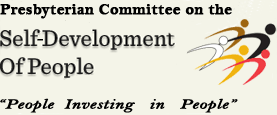SDOP history
After World War II, European nations, Japan, the Union of Soviet Socialist Republics and the United States mushroomed into technologically sophisticated societies. At the same time, however, a new spirit of nationalism was growing within the colonies of Britain, Spain, the Netherlands and France. Many new nations were born, some taking their zeal for independence from the very nations that had controlled them. But these new countries had minimal financial and technical resources at their disposal. No matter how hard they tried to catch up, advanced nations surged ahead at an accelerating rate. By 1961, the gap between what was called developed nations and underdeveloped nations had grown wider than before the war. Recognizing that polarization between the rich and poor countries was growing more intense, the United Nations issued a declaration:
“On December 19, 1961, the United Nations designated the period of the 1960s as the Development Decade, an era of unprecedented activity designed to reverse the process which widened the gap between the rich and poor nations. The need was recognized, plans were made and activities started ...”
Between 1961 and 1970, rich and poor nations across the globe still grew further apart, and as the world witnessed political, social and economic upheaval, the Church heard the voices of underprivileged people cry out for justice. How should the Church respond?
It seemed that massive foreign aid programs administered by governmental or ecumenical agencies could lower the rising incidence of death and disease but could not reverse the process of degeneration in underdeveloped countries. In addition, the kinds of ministries in which the United Presbyterian Church was then engaged were not capable of totally responding to that cry.
Nevertheless, the Church’s history of mission showed that for the past 150 years, various governing bodies and their agencies had often interpreted Christ’s commands to teach, to preach and to heal through developmental ministries, which emphasized an individual’s moral right to fulfill his or her own potential. The concept of self-development was as old as the Church itself. It simply needed to be brought to the forefront and applied to the modern dilemma.
The Church interpreted “power” as the ability to control one's destiny. But the forces which alienated rich nations from poor ones worked within advanced countries as well. The concept of a self-made person, choosing his or her own path, was vital to the Church, but as a social reality seemed little more than a dream.
Why? In technologically sophisticated societies, the ability to take the reins of one’s life into one’s own hands was too often inhibited by a tyranny of poverty and discrimination, a tyranny which was theologically no more acceptable to the Church than that of despotic governments. It was morally demeaning for Christians to stand by and watch millions travel down the road to despair.
In a period of great insight and inspiration, the 1970 General Assembly launched a project that strongly recognized this fact of ecclesiastical reality. In order to get the program started, the Board of National Missions provided $1,250,000 to implement the work of the National Committee on the Self-Development of People, until monies would be coming in from the One Great Hour of Sharing offering.
SDOP historical roots

James Forman
James Forman (1928-2005) was the great civil rights leader who served as the executive secretary of the Student Nonviolent Coordinating Committee in the 1960s. In 1969, Forman was one of the organizers of the Black Economic Development Conference in Detroit. At this conference, he played a major role in the writing of the Black Manifesto, which called for reparations from white churches for past injustices to people of color.
After the conference, Forman first presented the Black Manifesto at Riverside Church in New York City, and then at the annual conferences of various denominations.
During the same time period, questions about justice issues relating to Hispanic people in the United States were being raised. Eliezer Risco, representing an organization called La Raza, expressed many of these concerns to the 1969 General Assembly of the former United Presbyterian Church (U.S.A.), which was meeting in San Antonio. As part of their presentation, La Raza indicated that they supported the Black Manifesto.
Forman, too, was at the General Assembly that year, where he shared the Black Manifesto.
Presbyterians responded to Risco and Forman by appointing a committee to study the matters that had been raised by them. When that Committee reported back to the General Assembly in 1970, the Assembly adopted the Committee’s recommendation, thus starting the Self-Development of People ministry.
The 1970 General Assembly gave Self-Development of People this mandate:
The Presbyterian Committee on the Self-Development of People shall assist the Presbyterian Church (U.S.A.) in carrying out its global commitment to work toward the self-development of economically poor, oppressed, and disadvantaged people who own, control, and benefit directly from projects that promote long-term change in their lives and communities. The mandate was established by the 182nd General Assembly (1970) of the former United Presbyterian Church (U.S.A.) and reaffirmed and approved by the 199th General Assembly (1987) of the Presbyterian Church (U.S.A.)

